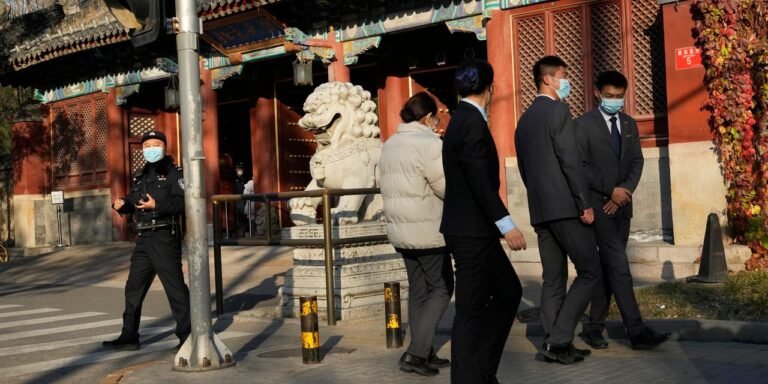
Chinese doctors have a direct message for Xi Jinping: The country’s health system is unprepared for a huge national coronavirus outbreak that will inevitably follow any easing of strict measures to contain COVID-19.
The warning to the Chinese leader was issued by a dozen health professionals interviewed by the Financial Times this month and echoed by international experts.
“The medical system is likely to be crippled in the face of mass cases,” a doctor at a public hospital in Wuhan, central China, where the pandemic began nearly three years ago, reportedly told the FT.
Do not miss: China announces first COVID-19 death in nearly 6 months
Also see: CNET Live: Stock futures slip on China’s COVID lockdown
The warning also serves as a reality check for many people in China and around the world hoping that Xi will end his zero-COVID policy. Experts said the policy meant China had not prioritized building strong defenses against a mass outbreak, instead focusing its resources on containment.
At the heart of the problem Beijing has created for itself is what many see as an inevitable “exit wave” — that is, a rapid increase in infections as the country lifts its heavy pandemic restrictions.
This wave threatens to overwhelm the country’s health services unless Xi and his lieutenants make sweeping changes to the zero COVID policy that is in the works.
The official number of cases in China is at its highest level in six months, including a record number of infections in the capital Beijing and the southern manufacturing hub of Guangzhou.
See: China’s COVID-19 restrictions hit Beijing’s historic theater
The Zero COVID strategy involves lockdowns – of buildings, suburbs or entire cities – as well as mass testing, quarantines and electronic contact tracing. Although successful in suppressing outbreaks, the policy has exacerbated problems in China’s health care system and left much of the population deeply fearful of the virus.
Chinese elderly have resisted taking a vaccine to prevent it. Only 40% of those over 80 have received three injections of a locally produced vaccine, the dose required to achieve high levels of protection against the omicron variant.
Jin Dong-yan, a virologist at the University of Hong Kong, said Chinese hospitals could be overwhelmed by an influx of unvaccinated elderly patients in the event of a massive outbreak, replicating a crisis in Hong Kong this year when hospitals and morgues ran running out of space. at the peak of an epidemic.
“A Hong Kong-like outbreak can be prevented if they increase vaccination coverage for the elderly and stockpile antivirals, two things Hong Kong did not do before the outbreak,” he said.
Still, some analysts and stock market traders have reacted enthusiastically in recent weeks to perceived signs that Beijing is turning to a “reopening” plan — a change in course they hope will boost confidence in the world’s largest consumer market and ease disruptions that have sporadically disrupted global supply chains. Optimism rose last week after Beijing eased quarantine requirements for close contacts and international travelers.
Frontline workers say that nearly three years into the pandemic, China’s health system is much more strained than it was at the start. Funding, personnel and scarce medical resources have been diverted to pandemic control rather than preparations to treat the vulnerable.
“Over the past few years, China’s health system has completely limped along and put all its manpower, funding and support into COVID prevention and control,” a provincial health official said. from Guangdong in southern China according to the FT. “It’s unsustainable.”
Those concerns, the official said, were relayed to Beijing. “Unfortunately, the central government has still not made any significant adjustments in the general direction,” the official added.
“Most local officials and health workers are very often at the mercy of rigid administrative orders, so the tragedy of patients unable to get medical help in time happens again and again,” said another doctor in Wuhan, according to vol.
During a shutdown in Shanghai in April, frontline medical staff struggled to cope with increased workloads after many staff were diverted to carry out tests across the city.
“The medical system is not ready for a full-scale reopening,” said another doctor working at a district hospital in northern China’s Inner Mongolia.